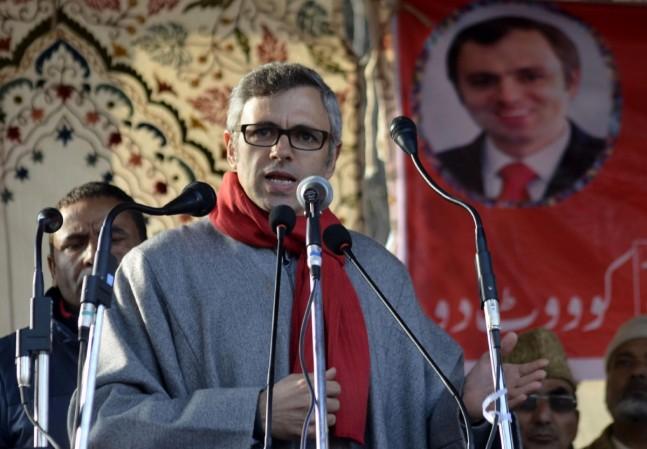
Former Jammu and Kashmir Chief Minister Omar Abdullah on Wednesday came out in defence of Shah Faesal, the IAS officer who faces disciplinary action for his posts on social media.
The state administration department served a notice to the 2010 Indian Administrative Service exam topper after the Department of Personnel and Trainings (DoPT) asked the state to initiate action against Faesal who is presently in the US pursuing a post-graduate course at the Harvard University.
The officer has been frankly voicing his views on various social issues in the country which a government servant is not permitted to do as per the rules quoted by the DoPT.
Back in April, Faesal had sparked public outrage with his "Rapistan" comment.
Patriarchy+Population+Illiteracy+Alcohol+Porn+Technology+Anarchy = Rapistan!
— Shah Faesal (@shahfaesal) April 22, 2018
Defending the officer, Omar Abdullah tweeted: "I see this notice as a case of bureaucratic over-enthusiasm where people who are pushing the files at the top do not understand the spirit of the times we are living in."
"You have no problem when officers from Rajasthan and elsewhere defy 'set norms of governance and conduct', yet Faesal's tweet about rape bothers you. Somehow this does not surprise me at all!"
"Looks like the DoPT is determined to chase @shahfaesal out of the civil services. The last line of this page is shocking and unacceptable where they question Faesal's 'integrity and honesty'. How is a sarcastic tweet dishonest? How does it make him corrupt?"
In his defence, the officer has said: "Government employees can be hauled for criticism of the government policy, agreed. But in this case, if you think rape is part of government policy only then you can take action against me which I believe it is not.
Love letter from my boss for my sarcastic tweet against rape-culture in South Asia.
— Shah Faesal (@shahfaesal) July 10, 2018
The Irony here is that service rules with a colonial spirit are invoked in a democratic India to stifle the freedom of conscience.
I'm sharing this to underscore the need for a rule change. pic.twitter.com/ssT8HIKhIK
"I think we need to understand that government employees live in a society and they cannot stay completely detached from the moral questions of the society. A ban on their freedom of speech and expression is totally unacceptable."
Faesal earlier said the rules prohibiting voicing of opinion on societal and governmental issues on social media by civil servants in India are monarchical and, therefore, need to be revisited immediately.










